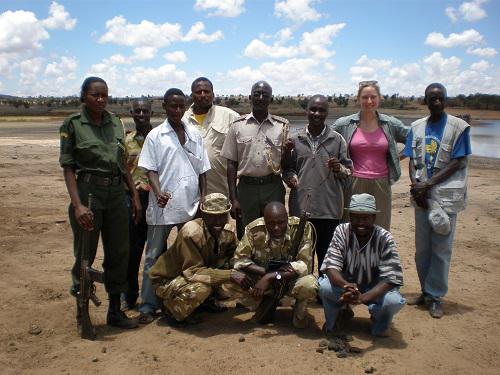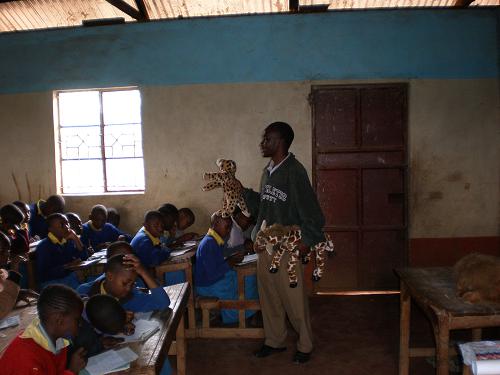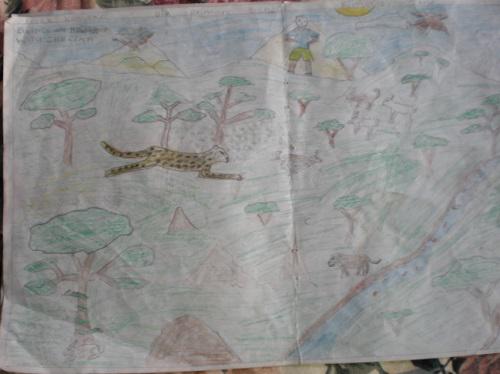Wallace Isaboke
The Machakos wildlife dispersal area is located in Makueni district in Kenya about 120km south east of Nairobi along the Nairobi–Mombasa highway. It encompasses private and community group ranches and covers an area of approximately 929 km2. The site is home to a variety of wildlife species including the threatened cheetah (Acinonyx jubatus) classified as “vulnerable” in the IUCN red book 2007 and listed on Appendix 1 of CITES (Convention on International Trade in Endangered Species) indicating that the species is threatened by trade and is in danger of extinction. Past studies show that there are between 500 to 1000 cheetahs in Kenya with a declining trend. Moreover, majority of this population reside outside protected areas where they are facing many threats to their survival.

Participants in the anti-snaring campaign.
At the project, increased incidents of illegal bush meat trade are threatening the cheetah’s existence by loss of its natural prey base (food). The rural communities in the area hunt gazelles, hares, etc using dogs, wire snares, and bows and arrows. Although, bush meat trade is seen as a way of generating income, use of wire snares has led to indiscriminate killing of both wildlife and livestock leading into huge losses for the community. This scenario in turn has increased human -cheetah conflicts in the sense that with reduced prey, the carnivore easily turns to livestock as the easiest and available source of its food. This happens due to lack of appreciation and understanding by the community on the importance of wildlife and limited skills in other sustainable income generating activities. Without the support and cooperation of people wildlife will have no chances of survival in the area.

Conservation education using puppets at Tangu Primary School.
Therefore the project sets to raise community awareness, understanding and involvement in the control of bush meat activities. This will be conducted in the 3 primary schools in the area and in the community. The education outreach will seek to encourage the local people to be actively involved in the control of bush meat activities by forming community based scouts groups and deliberate on establishing a community owned wildlife sanctuary. To reduce dependency on bush meat as a source of alternative income, bee keeping and tree nursery demonstration projects will be established to impart skills geared towards a sustainable co-existence of wildlife and the people.

Drawing submitted by Eric Kanyeke from Ulu Primary school.